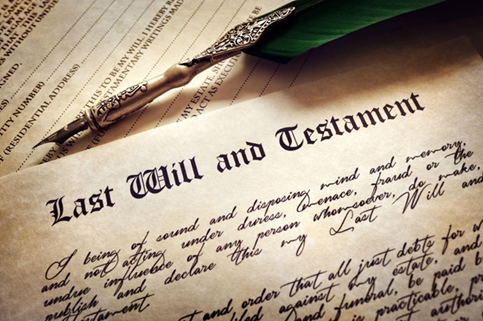 If you recently lost a loved one, you might not be thinking about your own estate plan. However, you are confronted with your own mortality at this time more than any other. If you are thinking about estate planning for widows or widowers, consider contacting an estate planning lawyer with Harrison Law, PLLC. Our seasoned attorneys can discuss your needs and how we can help during your confidential consultation. Get started today by calling (480) 320-2310.
If you recently lost a loved one, you might not be thinking about your own estate plan. However, you are confronted with your own mortality at this time more than any other. If you are thinking about estate planning for widows or widowers, consider contacting an estate planning lawyer with Harrison Law, PLLC. Our seasoned attorneys can discuss your needs and how we can help during your confidential consultation. Get started today by calling (480) 320-2310.
Why Widows and Widowers May Have Special Estate Planning Needs
When people are married, they often have a safety net for their estate planning needs. Many spouses name each other as executor for their Last Will and Testament, as co-trustee for their trust, and as agent for their power of attorney. When a spouse dies, all of these important fiduciary roles are left unfilled. If something happens to the widow or widower, there could be confusion, or important decision-making responsibilities might be assigned to people the widow or widower might not know, like, or trust.
Learning From Difficult Experiences
Widows or widowers may also find themselves in difficult situations brought on by an unexpected death. If their spouse did not have estate planning documents in place or those documents did not provide the types of terms that would have been helpful, the surviving spouse may want to create estate planning documents that better communicate their wishes.
Widowhood and Estate Taxes
Additionally, there may be important tax responsibilities for widows and widowers. An estate tax return may need to be filed with the Internal Revenue Service. If the estate wants to transfer any portion of the deceased spouse’s unused exclusion amount for estate tax purposes, this election must be made on the estate tax return. This is known as the portability election. A widow or widower can elect to reserve up to $12.92 million of the gift tax exclusion under current Estate and Gift Tax guidance.
Documents To Create or Update as a Widow or Widower
The ideal complement of estate planning documents will depend on an individual’s personal circumstances. An estate planning attorney with Harrison Law, PLLC may be able to advise you regarding the most appropriate options for your unique needs. With that in mind, here are a few commonly used documents it may be useful to create or update as part of estate planning for widows or widowers:
Last Will and Testament
An individual’s Last Will and Testament states what they want to happen to their property after they have died. This document also names the executor the testator wants to carry out their wishes. In some cases, the will may also name a guardian to care for any minor children if the testator passes away before these children reach their majority. These roles may need to be updated if the testator had previously named their spouse.
Spouses frequently state they want their partner to receive all of their property or a substantial portion of it. A widow or widower may need to think carefully about the beneficiaries they want to receive their property.
Trust
A trust is an effective estate planning tool that allows a grantor (the person who creates a trust) to provide detailed instructions on how the enclosed property should be managed. Grantors can include provisions on what should happen to the property in the trust upon their own death or incapacitation. Particularly in cases of joint trusts, after one spouse passes away there may be provisions about whether any property should be transferred, and to whom. In some cases, a widow or widower may decide that they need a new trust, that they want to change the trust (for a revocable trust), or that they no longer want a trust at all.
Healthcare Power of Attorney
Many individuals name their spouses as agent to act under a healthcare power of attorney. These agents are entrusted with making important decisions on the principal’s behalf regarding their healthcare. If a widow or widower who previously named their spouse did not name an alternate agent, they may need to update their healthcare power of attorney to name a new agent and alternate.
Living Will
All too often, widows and widowers go through a medical crisis before their spouse’s unfortunate passing. These experiences sometimes change the way bereaved individuals see important medical decisions. The living will form provided by the Attorney General of the State of Arizona allows individuals to put into writing their preferences for whether they would want or not want the following types of medical treatment in case of a terminal condition
- Life-sustaining treatment
- Resuscitation
- Artificial nutrition and hydration
- Feeding tubes
- Breathing tubes
- Medical treatment for other conditions
Durable Power of Attorney
Individuals also commonly name their spouses as their agents under durable power of attorney documents. Title 14 of the Arizona Revised Statutes provides for any adult of sound mind to name a trusted agent to handle financial matters on their behalf, including:
- Withdrawing and depositing funds from the principal’s bank accounts
- Removing or depositing contents into the principal’s safe deposit box
- Demanding payment for money owed to the principal
- Borrowing or loaning money on behalf of the principal
- Buying or selling real or personal property
- Leasing or collecting rent on real property owned by the principal
- Managing the principal’s business
Individuals whose agent was their now-deceased spouse may wish to update the agent, and take the opportunity to review any powers that may need to be revised now that someone other than the spouse will be authorized to handle these matters. If an individual does not have a durable power of attorney in place and one later becomes necessary, family members may need to petition the court to act on the principal’s behalf.
Other Documents
Depending on their individual circumstances, a widow or widower may have other documents they wish to create or update, such as:
- Life insurance beneficiary designation forms
- Beneficiary designation forms for retirement accounts, including IRA and 401(k) accounts
- Payable-on-death forms for bank accounts
- Titles for vehicles and other personal property
- Deeds for real property
How a Lawyer Can Help with Estate Planning for Widows and Widowers
An experienced and compassionate estate planning attorney can help a widow or widower create or update their estate plan by:
- Listening to concerns about the estate plan
- Reviewing the most recent version of the estate plan and advising on which documents a bereaved former spouse might consider updating
- Drafting estate planning documents based on the individual’s specific requirements and circumstances
- Following proper formalities such as having documents signed by disinterested witnesses, as necessary
- Explaining which tax-filing status to use
- Advising the widow or widower on the tax effects of taking certain actions regarding their late spouse’s assets, such as rolling over an IRA into their own account
Contact an Experienced Estate Planning Lawyer to Update Your Estate Plan
If you would like assistance with estate planning for widows or widowers, consider contacting an estate planning lawyer with Harrison Law, PLLC. These seasoned professionals can provide expert guidance and compassionate assistance, whether the bereavement is recent or decades old. Call (480) 320-2310 to get started today.
© 2023 Matthew W. Harrison and Harrison Law, PLLC All Rights Reserved
This website and article have been prepared by Harrison Law, PLLC for informational purposes only and does not, and is not intended to, constitute legal or financial advice. The information is not provided in the course of an attorney-client relationship and is not intended to substitute for legal advice from an attorney licensed in your jurisdiction.






